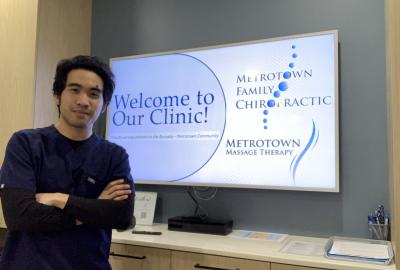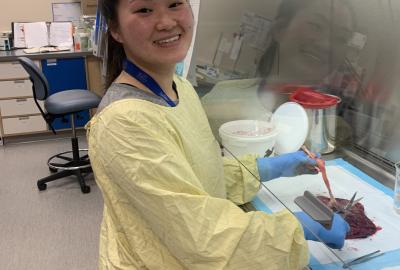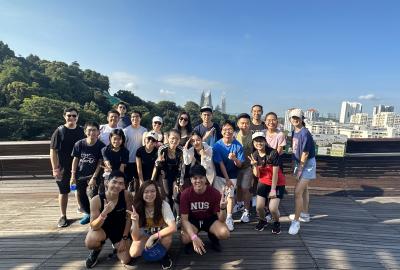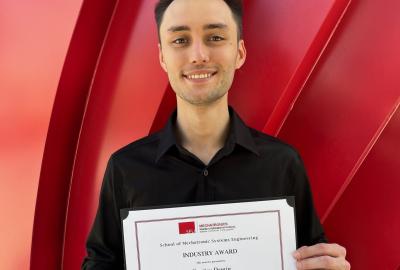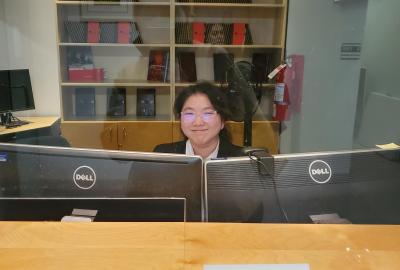
Transitioning into the work of work can be difficult for full time students as some may not be aware of on-the-job expectations or how they should act in this new environment. While you could brush up by watching re-runs of “The Office” or reading “Dilbert” comics, we encourage you to read on for some tips from Co-op staff. Employers regularly provide feedback to the Co-op program to help future students make the transition into the workplace.
Erika Wah (Communication Co-op Coordinator)
So you've got a new job. You're a few weeks in and starting to get a sense of what's expected of you (hopefully!). What's next? How do you become your employer's "dream co-op student"?
Here's what your employer might be wondering about you: how and when are you going to demonstrate your:
-
Accountability/responsibility
-
Enthusiastic and positive attitude
-
Honest, ethical behaviour
-
High performance standards
-
Initiative
These five elements of you as a worker are what employers seek out the most*. Think of some ways that you are already demonstrating these and some ideas about how you can demonstrate them in the months to come.
Keep a work journal and write everything down (responsible).
Don't just ask for things to do if you are bored, but pay attention to where your workplace needs help and show your interest in helping out (enthusiasm). Be receptive to "grunt work" - have a sense of humour and have faith that by doing things you and others don't find challenging you are proving that you have the right attitude.
Find out what kind of personal activities are acceptable at work - check with your co-workers and leaders (i.e. company policy) - save your personal e-mail and Facebook time for lunch or after hours!
When you find something you love to do it's easy to demonstrate your high performance standards. Try to apply the same high standard to things that are more challenging or less interesting.
Listen. And act on what you hear. Seek feedback. Give feedback. In other words, take the initiative to be an engaged employee!
Paulette Johnston (Former Program Manager, Faculty of Arts and Social Sciences Co-op)
Top 3 Tips:
-
Attend Meetings
-
Volunteer
-
Be enthusiastic.
Why these three? In all the site visits I have done with employers, these are the things they most often mention as making all the difference in an ordinary versus extraordinary work term.
Here's why:
When you are invited to attend a meeting, even if just to listen to what's going on, you are being asked to participate in the organization's "big picture." Never go to these empty-handed: always bring something with which to take notes. You never know: you may be asked to do something, attend another meeting, contribute to your ideas by a later date, or join a committee. The worst thing you can do is think that your silent presence isn't required and decide not to attend. You will learn more about the organization, what others are working on, and what the priorities are.
If you see something you would like to be involved with, volunteer. For example, indicate to your supervisor that you have seen her working on a new brochure and that you have done a similar task in the past and could assist her. She might not be aware that you have this skill and gratefully accept your help. But, even if she declines this and indicates that the brochure has to be done to a strict format and she is working on this with the Communications group, she will still be impressed that you offered your assistance. Then maybe the next time a similar project comes up, she will think of you.
Finally, enthusiasm might seem like a stretch when you are working in a legal office and are asked to photocopy yet another 200 page document for a hearing the next day. But if you sigh deeply, make it clear you really don't want to be doing this, and then miss 14 pages, you clearly haven't realized that in a case like this probably everyone is running around doing last minute tasks for an important event. While it's hard to be enthusiastic about a particular task like photocopying, you can indicate your enthusiasm for participating in a project and doing what you can to get something done quickly and correctly. Employers often indicate they are impressed by someone who pitches in and are inclined to reward that with more challenging and interesting projects when they become available.
Completing tasks and wanting to work on them will definitely make work life more enjoyable. Arriving to work on time, being prepared for meetings, and finishing assignments a little earlier can make a huge difference with the mood between you and your employer. Hard work and dedication can only lead to bigger smiles in the work place – and offices can always use more of those.
Fellow Co-op students have first-hand experience with transitioning into a new work term and here’s their advice for making the most of it:
Jessica Yu recommends to not “be afraid to ask questions (at appropriate times). It's better to ask beforehand than making a mistake that may become harder to correct later on. Asking questions is not only a great way to get help, but it also shows that you take initiative and interest in your work”. Many students assume that they can figure out how to complete the task on their own, when in the end the results are entirely wrong. To avoid these mistakes, asking questions is the best route to take. As they say, there is no such thing as a stupid question.
Melissa Chungfat stresses that you should “talk to anyone and everyone. I enjoy my social environment and learn the most from my colleagues”. Not only will you learn more from other co-workers, but you will also establish connections that will most likely become a network for future job searches.
Keeping in mind a few of these key pieces of advice, your work term could be better than you, or anyone, expected. Just remember to maintain a positive attitude, show initiative, and become familiar with people who work around you, even if they aren’t part of the same projects. Best of luck in your upcoming Co-op work term!



